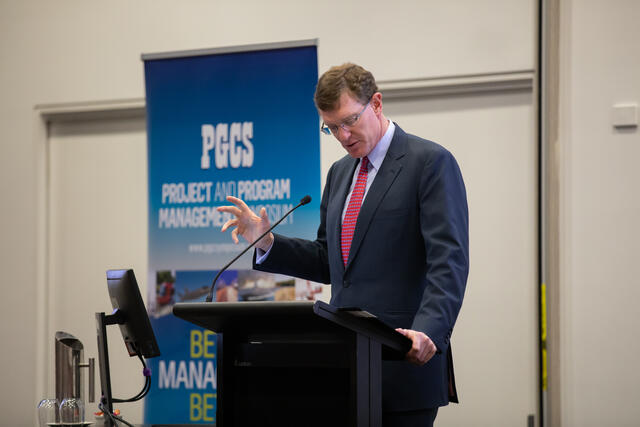The Project Management College of Scheduling is now officially open for business. As you may already know, a group of us led by Jon Wickwire and Stu Ockman joined together to found the Project Management Institute College of Scheduling in early-2002. A dozen years later, a new group (including me and many of the leaders of the former College) founded its successor, The Project Management College of Scheduling (PM-COS). Subsequently, the PM-COS has completed the formalities necessary under USA law and is now officially open for business.
The role fulfilled by PM-COS is intended to be quite different to most member based organisations, focused on creating knowledge and capability in the scheduling profession. As a member, you will:
- Be a part of creating the centre of excellence for the advancement of scheduling and project controls throughout the world
- Collaborate with other top schedule professionals, consultants and experts in identifying and instituting best practices on your projects
- Help develop standards in all areas of scheduling including specifying, preparing, updating, software, claims, training and research
- Provide education and training to promote accurate and ethical scheduling
- Join in a dialog with software developers to foster implementations of new, innovative features in upcoming releases
- Participate in mentoring the next generation of scheduling professionals
If sharing ideas and giving back to the profession get you excited and you’d like to be a part of our journey, why not Join Us now. And, whether or not membership in the College is in your future, we’d love to have you with us at our annual conference, May 15th-18th in Chicago.
 The Project Management College of Scheduling Annual International Conference, Scheduling the Future, will be held on the 15th to 18th May at the Hyatt Chicago Magnificent Mile. This is a terrific opportunity to:
The Project Management College of Scheduling Annual International Conference, Scheduling the Future, will be held on the 15th to 18th May at the Hyatt Chicago Magnificent Mile. This is a terrific opportunity to:
(1) share ideas,
(2) see old friends and make new ones and
(3) participate in this year’s premier planning and scheduling event.
We have a terrific technical program offering 14 Professional Development Units (PDU’s), with speakers and panel discussions planned to give everyone a chance to participate. In addition, we have a social program with a Sunday night vendor reception, Monday night Gala Dinner and Tuesday night free for a night on the town. We’re also planning a golf tournament Wednesday afternoon.
Don’t forget to check out the conference program, and drop by our website, http://www.pmcos.org/, to sign up now. We’re offering a discount for PMCOS Members and another for early member-registration. Finally, make your hotel reservations directly with the Hyatt Magnificent Mile at their website. This may be the most important part since we’re visiting during peak season and the hotel has reserved a limited number of rooms for the conference.
We’ve got a lot planned, and you can help us make it a success!











